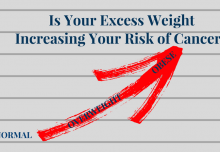Is Your Stress, Anxiety, or Depression Making You Fat?
How you handle stress, disappointment and sadness can make or break your weight loss goals. It’s important to understand that there are not just negative mental effects from experiencing distress, there are also real physical effects on your body. Anytime you feel anxious or depressed, your body reacts. High stressor experiences, short or long term, affect neurotransmitters that control your mood, appetite, behavior and state of mind. The more stress and unhappiness you experience, the more likely you are to make poor food choices, leading you to binge on junk foods and skipping other healthy pursuits such as exercise—This leads to unwanted weight gain.
Science has proven that experiencing a high state of stress causes your body to release a hormone called cortisol, and this dastardly hormone is considered an enemy of weight loss. Why? It’s because when your body releases cortisol, you are more likely to crave both comfort and energy, and often this manifests in the form of binge eating and bad food choices.
Once you respond to stress and unhappiness by, say gobbling down cupcakes or bag of chips, your body begins a rollercoaster ride of sorts. Once you’ve indulged in a bout of impulse eating your body releases a spike in dopamine which gives you a temporary high, and then followed by a crash in your blood sugar level. Left feeling jittery and hungry again, thanks to your low blood sugar resulting from an abundance of insulin in your blood stream, you then relieve it by reaching for more food. And so the vicious ride to weight gain continues.
Indeed, learning to manage stress, anxiety and sad situations better may be challenging, but it is possible. Seeking the help of a behavior health expert who can teach you strategies to better manage emotions and difficulties in life can free you from a reactive cycle of eating to overcome upsetting emotional experiences. Gaining skills that can help you more effectively manage your emotions will empower your ability to lose weight and improve your health.
Ask your BodyTech coach how you can keep your stressors in check, boost serotonin, promote the release of endorphins and create or maintain a happier, healthier state of mind.







